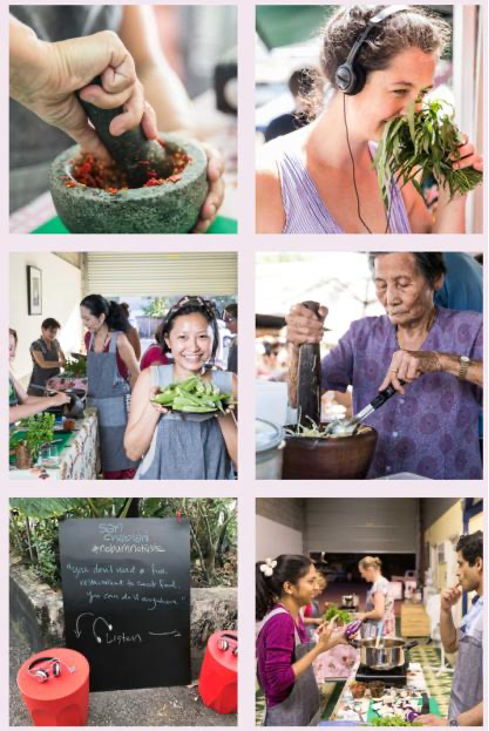Tropical Kitchen: Amongst the smells and stirrings are futures
Okra is a staple at the Rapid Creek, Nightcliff and Parap markets both within food ready to eat and fresh to take away and cook. In the first year of the project, I invited Jamie Lewis to collaborate with me on the first Tropical Kitchen program, she chose Okra as a key ingredient in a menu of food that participants would cook.
I observed as we guided community participants through our program of cooking and stories, how few knew the name, nor the flavour, nor how to cook Okra. The Okra as a collaborator provoked insightful and far reaching conversation including:
‘I love this (insert) food, I am scared to eat (insert) food, I grew up with (insert) food’
‘I see these all the time at the markets but feel embarrassed to ask what they are’
‘I have tried to cook but without any advice or knowledge they did not taste very nice’
These conversations built connections between unfamiliar participants. The situated event of the cooking class becomes the site for inquiry into collaborative processes amongst strangers. This microcosm of an ‘event’ being repeated over and over again with various participants produces a multiplicity of stories, conversation and food outputs – material thinking that is harnessed in my practice to produce shared re/learnings.
These learnings appear in micro ways within the future of the project to begin conversations around heritage, labour, de-colonisation and food security. The process of bringing together the general public, artists, and food and specialists from across industries and backgrounds, has created a community within Darwin that now shares a co-curated language around a breadth of related topics. Such collaborative practice I want to argue is building an ecology over time that has been nourished by the multiplicity of opinions and concerns, an ecology from which to build a shared vision for the future community cohesiveness and environmental awareness.
My research allows me to ask: What if these learnings were used in extended and enriched ways, overlaid with others learnings, producing ways of creating shifts in the Anthropocene? “I’m interested not only in what a socially engaged artwork is, but what it does. Where does the artwork end and everyday relations of power resume? What are the direct or indirect outcomes of these interventions into the social fabrics?” (Johnson, 2019) For example, Tropical Kitchen produced a co-curated language, I am now interested in my research to see how that can infect other places, people, elements and policy on Larrakia Country. Transforming learnings from one context into the collective knowing.
